从零开始:深入理解Kubernetes架构及安装过程
K8s环境搭建
文章目录
- K8s环境搭建
- 集群类型
- 安装方式
- 环境规划
- 克隆三台虚拟机
- 系统环境配置
- 集群搭建
- 初始化集群(仅在master节点)
- 配置环境变量(仅在master节点)
- 工作节点加入集群(knode1节点及knode2节点)
- 安装calico网络(仅master节点)
集群类型
- Kubernetes 集群大致分为两类:一主多从和多主多从。
- 一主多从(单 master ):一个 Master 节点和多台Node 节点,搭建简单,但是有单机故障风险,适合用于测试环境。
- 多主多从(高可用):多台 Master 节点和多台 Node节点,搭建麻烦,安全性高,适合用于生产环境。
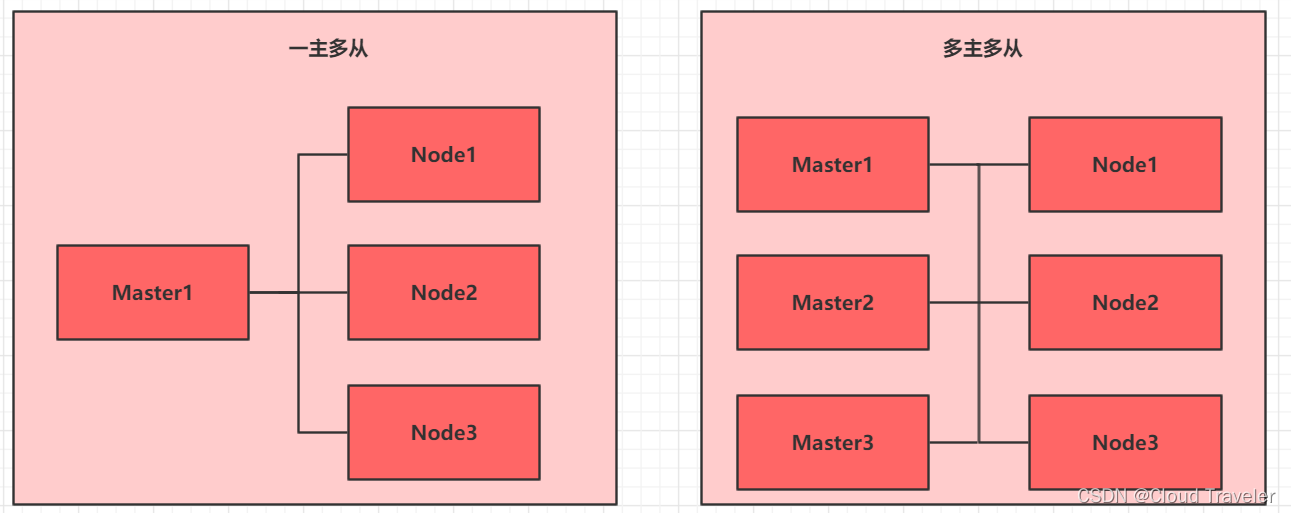
安装方式
- Kubernetes 有多种部署方式,目前主流的方式有 kubeadm 、minikube 、二进制包。
- ① minikube:一个用于快速搭建单节点的 Kubernetes 工具。
- ② kubeadm:一个用于快速搭建Kubernetes 集群的工具(可以用于生产环境)。
- ③ 二进制包:从官网上下载每个组件的二进制包,依次去安装(建议生产环境使用)。
环境规划
- 操作系统版本
Centos Stream 8- 安装源可访问阿里云开源镜像站或其他镜像站下载
- 环境需要用到
3台虚拟机,需要联通外网,网卡类型 NAT 或者 桥接。- 本文通过脚本文件快速搭建 k8s集群
| 主机名 | ip地址 | 内存 | 磁盘 | 处理器 |
|---|---|---|---|---|
| Kmaster | 192.168.129.200 | 8GB | 100GB | 2 |
| Knode1 | 192.168.129.201 | 8GB | 100GB | 2 |
| Knode2 | 192.168.129.202 | 8GB | 100GB | 2 |
也可根据自身电脑性能进行内存和存盘的分配,处理器每个节点最少两颗。
克隆三台虚拟机
准备三个文件夹

一定要注意,是完整克隆
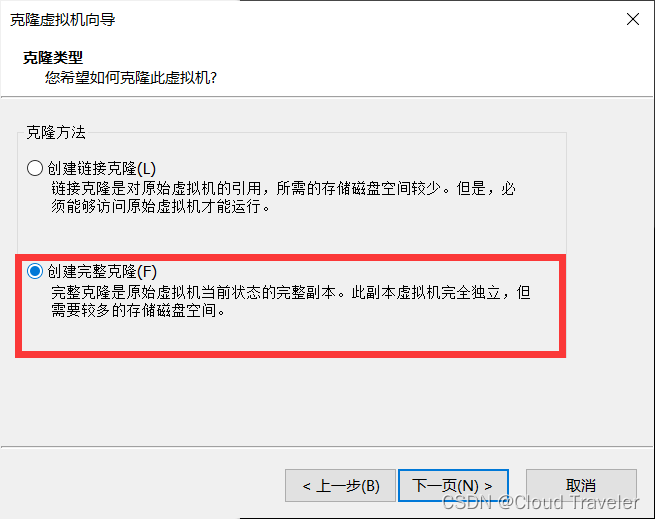
启动,修改3台虚拟机主机名及ip地址。
注意:修改ip地址的时候,看清楚你的网卡名字叫什么,我的是 ifcfg-ens160.
修改完成之后,关机拍快照。
# kmaster 节点
[root@tmp ~]# hostnamectl set-hostname kmaster
[root@kmaster ~]# cd /etc/sysconfig/network-scripts/
[root@kmaster network-scripts]# vi ifcfg-ens160
[root@kmaster network-scripts]# cat ifcfg-ens160
TYPE=Ethernet
BOOTPROTO=none
NAME=ens160
DEVICE=ens160
ONBOOT=yes
IPADDR=192.168.129.200
NETMASK=255.255.255.0
GATEWAY=192.168.129.2
DNS1=192.168.129.2# knode1 节点
[root@tmp ~]# hostnamectl set-hostname knode1
[root@knode1 ~]# cd /etc/sysconfig/network-scripts/
[root@knode1 network-scripts]# vi ifcfg-ens160
[root@knode1 network-scripts]# cat ifcfg-ens160
TYPE=Ethernet
BOOTPROTO=none
NAME=ens160
DEVICE=ens160
ONBOOT=yes
IPADDR=192.168.129.201
NETMASK=255.255.255.0
GATEWAY=192.168.129.2
DNS1=192.168.129.2# knode2 节点
[root@tmp ~]# hostnamectl set-hostname knode2
[root@knode2 ~]# cd /etc/sysconfig/network-scripts/
[root@knode2 network-scripts]# vi ifcfg-ens160
[root@knode2 network-scripts]# cat ifcfg-ens160
TYPE=Ethernet
BOOTPROTO=none
NAME=ens160
DEVICE=ens160
ONBOOT=yes
IPADDR=192.168.129.202
NETMASK=255.255.255.0
GATEWAY=192.168.129.2
DNS1=192.168.129.2
系统环境配置
点击获取脚本及其配置文件
本脚本针对网卡为 ens160,如果不是,请修改脚本网卡指定。
K8s版本 1.27.0
[root@kmaster ~]# vim Stream8-k8s-v1.27.0.sh
#!/bin/bash
# CentOS stream 8 install kubenetes 1.27.0
# the number of available CPUs 1 is less than the required 2
# k8s 环境要求虚拟cpu数量至少2个
# 使用方法:在所有节点上执行该脚本,所有节点配置完成后,复制第11步语句,单独在master节点上进行集群初始化。
#1 rpm
echo '###00 Checking RPM###'
yum install -y yum-utils vim bash-completion net-tools wget
echo "00 configuration successful ^_^"
#Basic Information
echo '###01 Basic Information###'
hostname=`hostname`
# 网卡为 ens160
hostip=$(ifconfig ens160 |grep -w "inet" |awk '{print $2}')
echo 'The Hostname is:'$hostname
echo 'The IPAddress is:'$hostip#2 /etc/hosts
echo '###02 Checking File:/etc/hosts###'
hosts=$(cat /etc/hosts)
result01=$(echo $hosts |grep -w "${hostname}")
if [[ "$result01" != "" ]]
thenecho "Configuration passed ^_^"
elseecho "hostname and ip not set,configuring......"echo "$hostip $hostname" >> /etc/hostsecho "configuration successful ^_^"
fi
echo "02 configuration successful ^_^"#3 firewall & selinux
echo '###03 Checking Firewall and SELinux###'
systemctl stop firewalld
systemctl disable firewalld
se01="SELINUX=disabled"
se02=$(cat /etc/selinux/config |grep -w "^SELINUX")
if [[ "$se01" == "$se02" ]]
thenecho "Configuration passed ^_^"
elseecho "SELinux Not Closed,configuring......"sed -i 's/^SELINUX=enforcing/SELINUX=disabled/g' /etc/selinux/configecho "configuration successful ^_^"
fi
echo "03 configuration successful ^_^"#4 swap
echo '###04 Checking swap###'
swapoff -a
sed -i "s/^.*swap/#&/g" /etc/fstab
echo "04 configuration successful ^_^"#5 docker-ce
echo '###05 Checking docker###'
yum-config-manager --add-repo http://mirrors.aliyun.com/docker-ce/linux/centos/docker-ce.repo
echo 'list docker-ce versions'
yum list docker-ce --showduplicates | sort -r
yum install -y docker-ce
systemctl start docker
systemctl enable docker
cat <<EOF > /etc/docker/daemon.json
{"registry-mirrors": ["https://cc2d8woc.mirror.aliyuncs.com"]
}
EOF
systemctl restart docker
echo "05 configuration successful ^_^"#6 iptables
echo '###06 Checking iptables###'
cat <<EOF > /etc/sysctl.d/k8s.conf
net.bridge.bridge-nf-call-ip6tables = 1
net.bridge.bridge-nf-call-iptables = 1
net.ipv4.ip_forward = 1
EOF
sysctl -p /etc/sysctl.d/k8s.conf
echo "06 configuration successful ^_^"#7 cgroup(systemd/cgroupfs)
echo '###07 Checking cgroup###'
containerd config default > /etc/containerd/config.toml
sed -i "s#registry.k8s.io/pause#registry.aliyuncs.com/google_containers/pause#g" /etc/containerd/config.toml
sed -i 's/SystemdCgroup = false/SystemdCgroup = true/g' /etc/containerd/config.toml
systemctl restart containerd
echo "07 configuration successful ^_^"#8 kubenetes.repo
echo '###08 Checking repo###'
cat <<EOF > /etc/yum.repos.d/kubernetes.repo
[kubernetes]
name=Kubernetes
baseurl=https://mirrors.aliyun.com/kubernetes/yum/repos/kubernetes-el7-x86_64/
enabled=1
gpgcheck=1
repo_gpgcheck=1
gpgkey=https://mirrors.aliyun.com/kubernetes/yum/doc/yum-key.gpg https://mirrors.aliyun.com/kubernetes/yum/doc/rpm-package-key.gpg
EOF
echo "08 configuration successful ^_^"#9 crictl
echo "Checking crictl"
cat <<EOF > /etc/crictl.yaml
runtime-endpoint: unix:///run/containerd/containerd.sock
image-endpoint: unix:///run/containerd/containerd.sock
timeout: 5
debug: false
EOF
echo "09 configuration successful ^_^"#10 kube1.27.0
echo "Checking kube"
yum install -y kubelet-1.27.0 kubeadm-1.27.0 kubectl-1.27.0 --disableexcludes=kubernetes
systemctl enable --now kubelet
echo "10 configuration successful ^_^"
echo "Congratulations ! The basic configuration has been completed"#11 Initialize the cluster
# 仅在master主机上做集群初始化
# kubeadm init --image-repository registry.aliyuncs.com/google_containers --kubernetes-version=v1.27.0 --pod-network-cidr=10.244.0.0/16
在三台节点上分别运行脚本
[root@kmaster ~]# sh Stream8-k8s-v1.27.0.sh
[root@knode1 ~]# sh Stream8-k8s-v1.27.0.sh
[root@knode2 ~]# sh Stream8-k8s-v1.27.0.sh# ***kmaster输出记录***
###00 Checking RPM###
CentOS Stream 8 - AppStream
CentOS Stream 8 - BaseOS
CentOS Stream 8 - Extras
CentOS Stream 8 - Extras common packages
Dependencies resolved.
=============================================================================================================================================================Package Architecture
=============================================================================================================================================================
Installing:bash-completion noarch net-tools x86_64
......略......Installed:conntrack-tools-1.4.4-11.el8.x86_64 cri-tools-1.26.0-0.x86_64 kubeadm-1.27.0-0.x86_64 kubectl-1.27.0-0.x86_64 libnetfilter_queue-1.0.4-3.el8.x86_64 socat-1.7.4.1-1.el8.x86_64 Complete!
Created symlink /etc/systemd/system/multi-user.target.wants/kubelet.service → /usr/lib/systemd/system/kubelet.service.
10 configuration successful ^_^
Congratulations ! The basic configuration has been completed# ***knode1和knode2输出记录与kmaster一致***
集群搭建
初始化集群(仅在master节点)
复制脚本中最后一段命令执行,进行
集群初始化
[root@kmaster ~]# kubeadm init --image-repository registry.aliyuncs.com/google_containers --kubernetes-version=v1.27.0 --pod-network-cidr=10.244.0.0/16
[init] Using Kubernetes version: v1.27.0
[preflight] Running pre-flight checks[WARNING FileExisting-tc]: tc not found in system path
[preflight] Pulling images required for setting up a Kubernetes cluster
[preflight] This might take a minute or two, depending on the speed of your internet connection
[preflight] You can also perform this action in beforehand using 'kubeadm config images pull'
W0719 10:48:35.823181 13745 images.go:80] could not find officially supported version of etcd for Kubernetes v1.27.0, falling back to the nearest etcd vers
W0719 10:48:51.007564 13745 checks.go:835] detected that the sandbox image "registry.aliyuncs.com/google_containers/pause:3.6" of the container runtime is
[certs] Using certificateDir folder "/etc/kubernetes/pki"
[certs] Generating "ca" certificate and key
[certs] Generating "apiserver" certificate and key
[certs] apiserver serving cert is signed for DNS names [kmaster kubernetes kubernetes.default kubernetes.default.svc kubernetes.default.svc.cluster.local] an
[certs] Generating "apiserver-kubelet-client" certificate and key
[certs] Generating "front-proxy-ca" certificate and key
[certs] Generating "front-proxy-client" certificate and key
[certs] Generating "etcd/ca" certificate and key
[certs] Generating "etcd/server" certificate and key
[certs] etcd/server serving cert is signed for DNS names [kmaster localhost] and IPs [192.168.100.150 127.0.0.1 ::1]
[certs] Generating "etcd/peer" certificate and key
[certs] etcd/peer serving cert is signed for DNS names [kmaster localhost] and IPs [192.168.100.150 127.0.0.1 ::1]
[certs] Generating "etcd/healthcheck-client" certificate and key
[certs] Generating "apiserver-etcd-client" certificate and key
[certs] Generating "sa" key and public key
[kubeconfig] Using kubeconfig folder "/etc/kubernetes"
[kubeconfig] Writing "admin.conf" kubeconfig file
[kubeconfig] Writing "kubelet.conf" kubeconfig file
[kubeconfig] Writing "controller-manager.conf" kubeconfig file
[kubeconfig] Writing "scheduler.conf" kubeconfig file
[kubelet-start] Writing kubelet environment file with flags to file "/var/lib/kubelet/kubeadm-flags.env"
[kubelet-start] Writing kubelet configuration to file "/var/lib/kubelet/config.yaml"
[kubelet-start] Starting the kubelet
[control-plane] Using manifest folder "/etc/kubernetes/manifests"
[control-plane] Creating static Pod manifest for "kube-apiserver"
[control-plane] Creating static Pod manifest for "kube-controller-manager"
[control-plane] Creating static Pod manifest for "kube-scheduler"
[etcd] Creating static Pod manifest for local etcd in "/etc/kubernetes/manifests"
W0719 10:49:09.467378 13745 images.go:80] could not find officially supported version of etcd for Kubernetes v1.27.0, falling back to the nearest etcd vers
[wait-control-plane] Waiting for the kubelet to boot up the control plane as static Pods from directory "/etc/kubernetes/manifests". This can take up to 4m0s
[apiclient] All control plane components are healthy after 8.059875 seconds
[upload-config] Storing the configuration used in ConfigMap "kubeadm-config" in the "kube-system" Namespace
[kubelet] Creating a ConfigMap "kubelet-config" in namespace kube-system with the configuration for the kubelets in the cluster
[upload-certs] Skipping phase. Please see --upload-certs
[mark-control-plane] Marking the node kmaster as control-plane by adding the labels: [node-role.kubernetes.io/control-plane node.kubernetes.io/exclude-from-e
[mark-control-plane] Marking the node kmaster as control-plane by adding the taints [node-role.kubernetes.io/control-plane:NoSchedule]
[bootstrap-token] Using token: ddct8j.i2dloykyc0wpwdg3
[bootstrap-token] Configuring bootstrap tokens, cluster-info ConfigMap, RBAC Roles
[bootstrap-token] Configured RBAC rules to allow Node Bootstrap tokens to get nodes
[bootstrap-token] Configured RBAC rules to allow Node Bootstrap tokens to post CSRs in order for nodes to get long term certificate credentials
[bootstrap-token] Configured RBAC rules to allow the csrapprover controller automatically approve CSRs from a Node Bootstrap Token
[bootstrap-token] Configured RBAC rules to allow certificate rotation for all node client certificates in the cluster
[bootstrap-token] Creating the "cluster-info" ConfigMap in the "kube-public" namespace
[kubelet-finalize] Updating "/etc/kubernetes/kubelet.conf" to point to a rotatable kubelet client certificate and key
[addons] Applied essential addon: CoreDNS
[addons] Applied essential addon: kube-proxyYour Kubernetes control-plane has initialized successfully!To start using your cluster, you need to run the following as a regular user:mkdir -p $HOME/.kubesudo cp -i /etc/kubernetes/admin.conf $HOME/.kube/configsudo chown $(id -u):$(id -g) $HOME/.kube/configAlternatively, if you are the root user, you can run:export KUBECONFIG=/etc/kubernetes/admin.confYou should now deploy a pod network to the cluster.
Run "kubectl apply -f [podnetwork].yaml" with one of the options listed at:https://kubernetes.io/docs/concepts/cluster-administration/addons/Then you can join any number of worker nodes by running the following on each as root:kubeadm join 192.168.129.200:6443 --token ddct8j.i2dloykyc0wpwdg3 \--discovery-token-ca-cert-hash sha256:3bdd47846f02bcc9858d2946714341f22b37aaa07dbaa61594f2a0ecce80f4fb
配置环境变量(仅在master节点)
# 根据安装提示,执行命令
[root@kmaster ~]# mkdir -p $HOME/.kube
[root@kmaster ~]# sudo cp -i /etc/kubernetes/admin.conf $HOME/.kube/config
[root@kmaster ~]# sudo chown $(id -u):$(id -g) $HOME/.kube/config
[root@kmaster ~]# echo 'export KUBECONFIG=/etc/kubernetes/admin.conf' >> /etc/profile
[root@kmaster ~]# source /etc/profile[root@kmaster ~]# kubectl get nodes
NAME STATUS ROLES AGE VERSION
kmaster NotReady control-plane 2d23h v1.27.
工作节点加入集群(knode1节点及knode2节点)
将初始化集群后,生成的
kubeadm join语句,分别拷贝到两个节点执行
# knode1节点
[root@knode1 ~]# kubeadm join 192.168.129.200:6443 --token ddct8j.i2dloykyc0wpwdg3 \--discovery-token-ca-cert-hash sha256:3bdd47846f02bcc9858d2946714341f22b37aaa07dbaa61594f2a0ecce80f4fb
[preflight] Running pre-flight checks[WARNING FileExisting-tc]: tc not found in system path
[preflight] Reading configuration from the cluster...
[preflight] FYI: You can look at this config file with 'kubectl -n kube-system get cm kubeadm-config -o yaml'
[kubelet-start] Writing kubelet configuration to file "/var/lib/kubelet/config.yaml"
[kubelet-start] Writing kubelet environment file with flags to file "/var/lib/kubelet/kubeadm-flags.env"
[kubelet-start] Starting the kubelet
[kubelet-start] Waiting for the kubelet to perform the TLS Bootstrap...This node has joined the cluster:
* Certificate signing request was sent to apiserver and a response was received.
* The Kubelet was informed of the new secure connection details.Run 'kubectl get nodes' on the control-plane to see this node join the cluster.# knode2节点
[root@knode2 ~]# kubeadm join 192.168.129.200:6443 --token ddct8j.i2dloykyc0wpwdg3 \--discovery-token-ca-cert-hash sha256:3bdd47846f02bcc9858d2946714341f22b37aaa07dbaa61594f2a0ecce80f4fb [preflight] Running pre-flight checks[WARNING FileExisting-tc]: tc not found in system path
[preflight] Reading configuration from the cluster...
[preflight] FYI: You can look at this config file with 'kubectl -n kube-system get cm kubeadm-config -o yaml'
[kubelet-start] Writing kubelet configuration to file "/var/lib/kubelet/config.yaml"
[kubelet-start] Writing kubelet environment file with flags to file "/var/lib/kubelet/kubeadm-flags.env"
[kubelet-start] Starting the kubelet
[kubelet-start] Waiting for the kubelet to perform the TLS Bootstrap...This node has joined the cluster:
* Certificate signing request was sent to apiserver and a response was received.
* The Kubelet was informed of the new secure connection details.Run 'kubectl get nodes' on the control-plane to see this node join the cluster.[root@kmaster ~]# kubectl get nodes
NAME STATUS ROLES AGE VERSION
kmaster NotReady control-plane 2d23h v1.27.0
knode1 NotReady <none> 2d23h v1.27.0
knode2 NotReady <none> 2d23h v1.27.0
安装calico网络(仅master节点)
安装网络组件前,集群状态为
NotReady,安装后,稍等片刻,集群状态将变为Ready。
查看集群状态
[root@kmaster ~]# kubectl get nodes
NAME STATUS ROLES AGE VERSION
kmaster NotReady control-plane 2d23h v1.27.0
knode1 NotReady <none> 2d23h v1.27.0
knode2 NotReady <none> 2d23h v1.27.0
安装 Tigera Calico operator,版本 3.26
# 所需文件可在百度网盘自行获取
[root@kmaster ~]# kubectl create -f tigera-operator-3-26-1.yaml
namespace/tigera-operator created
customresourcedefinition.apiextensions.k8s.io/bgpconfigurations.crd.projectcalico.org created
customresourcedefinition.apiextensions.k8s.io/bgpfilters.crd.projectcalico.org created
customresourcedefinition.apiextensions.k8s.io/bgppeers.crd.projectcalico.org created
customresourcedefinition.apiextensions.k8s.io/blockaffinities.crd.projectcalico.org created
customresourcedefinition.apiextensions.k8s.io/caliconodestatuses.crd.projectcalico.org created
customresourcedefinition.apiextensions.k8s.io/clusterinformations.crd.projectcalico.org created
customresourcedefinition.apiextensions.k8s.io/felixconfigurations.crd.projectcalico.org created
customresourcedefinition.apiextensions.k8s.io/globalnetworkpolicies.crd.projectcalico.org created
customresourcedefinition.apiextensions.k8s.io/globalnetworksets.crd.projectcalico.org created
customresourcedefinition.apiextensions.k8s.io/hostendpoints.crd.projectcalico.org created
customresourcedefinition.apiextensions.k8s.io/ipamblocks.crd.projectcalico.org created
customresourcedefinition.apiextensions.k8s.io/ipamconfigs.crd.projectcalico.org created
customresourcedefinition.apiextensions.k8s.io/ipamhandles.crd.projectcalico.org created
customresourcedefinition.apiextensions.k8s.io/ippools.crd.projectcalico.org created
customresourcedefinition.apiextensions.k8s.io/ipreservations.crd.projectcalico.org created
customresourcedefinition.apiextensions.k8s.io/kubecontrollersconfigurations.crd.projectcalico.org created
customresourcedefinition.apiextensions.k8s.io/networkpolicies.crd.projectcalico.org created
customresourcedefinition.apiextensions.k8s.io/networksets.crd.projectcalico.org created
customresourcedefinition.apiextensions.k8s.io/apiservers.operator.tigera.io created
customresourcedefinition.apiextensions.k8s.io/imagesets.operator.tigera.io created
customresourcedefinition.apiextensions.k8s.io/installations.operator.tigera.io created
customresourcedefinition.apiextensions.k8s.io/tigerastatuses.operator.tigera.io created
serviceaccount/tigera-operator created
clusterrole.rbac.authorization.k8s.io/tigera-operator created
clusterrolebinding.rbac.authorization.k8s.io/tigera-operator created
deployment.apps/tigera-operator created
配置
custom-resources.yaml
[root@kmaster ~]# vim custom-resources-3-26-1.yaml
# 更改IP地址池中的 CIDR,和 kubeadm 初始化集群中的 --pod-network-cidr 参数保持一致(配置文件已做更改)
# cidr: 10.244.0.0/16# 所需文件可在百度网盘自行获取
[root@kmaster ~]# kubectl create -f custom-resources-3-26-1.yaml
installation.operator.tigera.io/default created
apiserver.operator.tigera.io/default created# 动态查看calico容器状态,待全部running后,集群状态变为正常
[root@kmaster ~]# watch kubectl get pods -n calico-system
NAME READYSTATUS RESTARTS AGE
calico-kube-controllers-5d6c98ff78-gcj2n 1/1Running 3 (103m ago) 2d23h
calico-node-cc9ct 1/1Running 3 (103m ago) 2d23h
calico-node-v8459 1/1Running 3 (103m ago) 2d23h
calico-node-w524w 1/1Running 3 (103m ago) 2d23h
calico-typha-bbb96d56-46w2v 1/1Running 3 (103m ago) 2d23h
calico-typha-bbb96d56-nrxkf 1/1Running 3 (103m ago) 2d23h
csi-node-driver-4wm4h 2/2Running 6 (103m ago) 2d23h
csi-node-driver-dr7hq 2/2Running 6 (103m ago) 2d23h
csi-node-driver-fjr77 2/2Running 6 (103m ago) 2d23h再次查看集群状态
[root@kmaster ~]# kubectl get nodes
NAME STATUS ROLES AGE VERSION
kmaster Ready control-plane 2d23h v1.27.0
knode1 Ready <none> 2d23h v1.27.0
knode2 Ready <none> 2d23h v1.27.
·END
2
Running 6 (103m ago) 2d23h
csi-node-driver-dr7hq 2/2
Running 6 (103m ago) 2d23h
csi-node-driver-fjr77 2/2
Running 6 (103m ago) 2d23h
> 再次查看集群状态```bash
[root@kmaster ~]# kubectl get nodes
NAME STATUS ROLES AGE VERSION
kmaster Ready control-plane 2d23h v1.27.0
knode1 Ready <none> 2d23h v1.27.0
knode2 Ready <none> 2d23h v1.27.
·END
相关文章:

从零开始:深入理解Kubernetes架构及安装过程
K8s环境搭建 文章目录 K8s环境搭建集群类型安装方式环境规划克隆三台虚拟机系统环境配置集群搭建初始化集群(仅在master节点)配置环境变量(仅在master节点)工作节点加入集群(knode1节点及knode2节点)安装ca…...

混淆技术研究笔记(五)混淆后如何反篡改?
有了上一节的基础工具后,接下来要考虑如何反篡改。 本文采用的是对混淆后的代码,针对某些关键包的字节码数据计算md5值,对所有类计算完成后对md5值进行排序,排序后拼接字符串再次计算md5值,最后通过私钥对md5进行RSA对…...
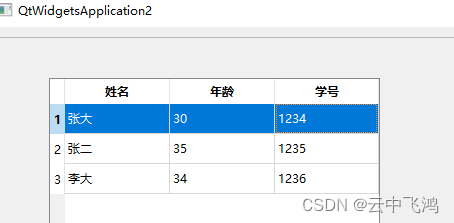
QTableWidget 表格部件
QTableWidget是QT中的表格组件类。一般用来展示多行多列的数据,是QT中使用较多的控件之一。1、QTableWidgetItem对象 QTableWidget中的每一个单元格都是一个QTableWidgetItem对象,因此先介绍下QTableWidgetItem的常用方法。 1.1、设置文本内容 void QT…...
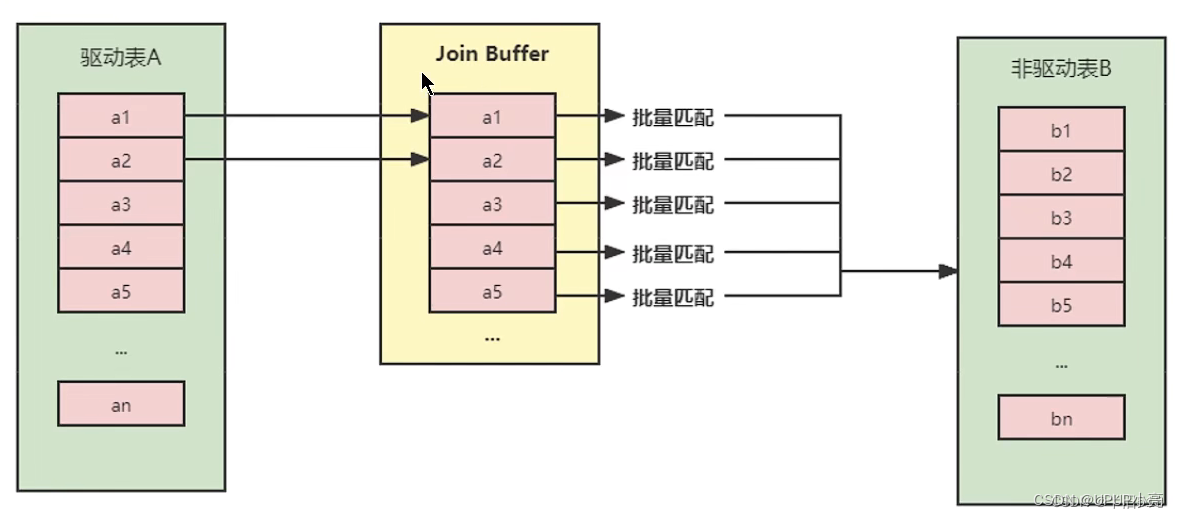
MySQL join的底层原理
文章目录 前言一、join是什么?二、join的使用例子三、join的连接方式1、简单嵌套2、索引嵌套3、块嵌套4、哈希连接 前言 面试的时候,被问到join 的底层原理,之前没有深入了解过,今天对这个知识点进行一个学习。 一、join是什么&…...

如何在 Spring Boot 中实现容错机制
在 Spring Boot 中实现容错机制 容错机制是构建健壮和可靠的应用程序的重要组成部分。它可以帮助应用程序在面对异常或故障时保持稳定运行。Spring Boot提供了多种机制来实现容错,包括异常处理、断路器、重试和降级等。本文将介绍如何在Spring Boot中实现这些容错机…...

Sqlite3 查询 今日、昨日、本周、上周、本月、上月、本季度、上季度、本年
一、使用Between AND select * from 表名 where 字段名 Between ‘2019-1-01 00:00:00’ AND ‘2019-7-12 23:59:59’ 二、使用>,< select * from 表名 where 字段名 > ‘2019-1-01 00:00:00’ and 字段名 < ‘2019-12-12 23:59:59’ 三、升降序 select * from 表…...

IDEA XML文件里写SQL比较大小条件
背景 最近开发的时候,有一个需求的查询需要支持范围查询[a,b),并且查询的结果要求查询的范围含头端点不含尾端点。因为between…and…查询的范围是含头含尾的,因而不能使用。 因此打算直接使用>和<来比较实现,使用>的时…...
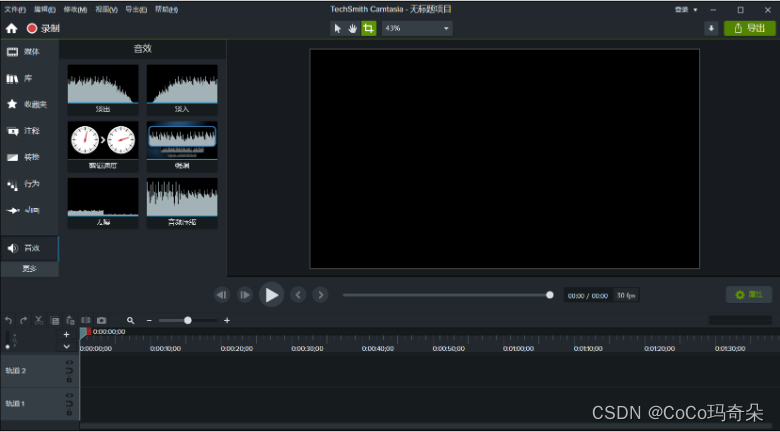
Camtasia Studio2024最新版本正式更新上线!
Camtasia Studio2024是一款专门录制屏幕动作的工具,它能在任何颜色模式下轻松地记录 屏幕动作,包括影像、音效、鼠标移动轨迹、解说声音等等,简单实用的视频录制软件,游戏的精彩画面,网络视频,屏幕录制可以让您录制屏幕所有内容视频录制支持3…...

各种业务场景调用API代理的API接口教程
API代理的API接口在各种业务场景中具有广泛的应用,本文将介绍哪些业务场景可以使用API代理的API接口,并提供详细的调用教程和代码演示,同时,我们还将讨论在不同场景下使用API代理的API接口所带来的好处。 哪些业务场景可以使用API…...

安卓App使用HttpURLConnection发送请求与上传文件
安卓原生App开发时常用的http开发工具 系统内置http请求工具为 HttpURLConnectionhttpClient 是 apache 的开源工具okHttp 使用更简单,语法相对HttpURLConnection也简洁了许多,需要在graddle添加依赖。 本文主要讲解如何使用HttpURConnection向服务器发…...
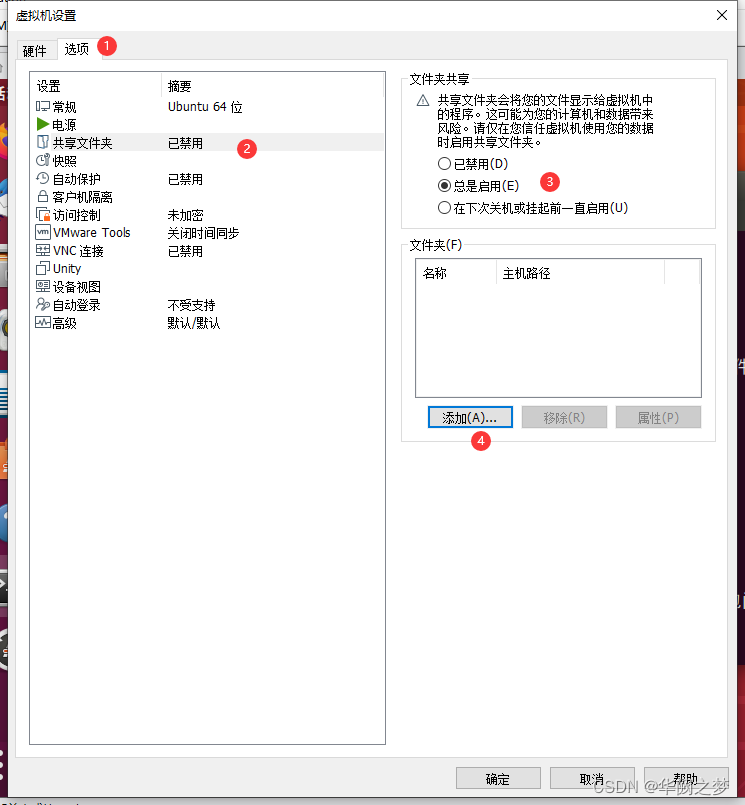
【Linux服务端搭建及使用】
连接服务器的软件:mobaxterm 设置root 账号 sudo apt-get install passwd #安装passwd 设置方法 sudo passwd #设置root密码 su root #切换到root账户设置共享文件夹 一、强制删除原有环境 1.删除python rpm -qa|grep pytho…...
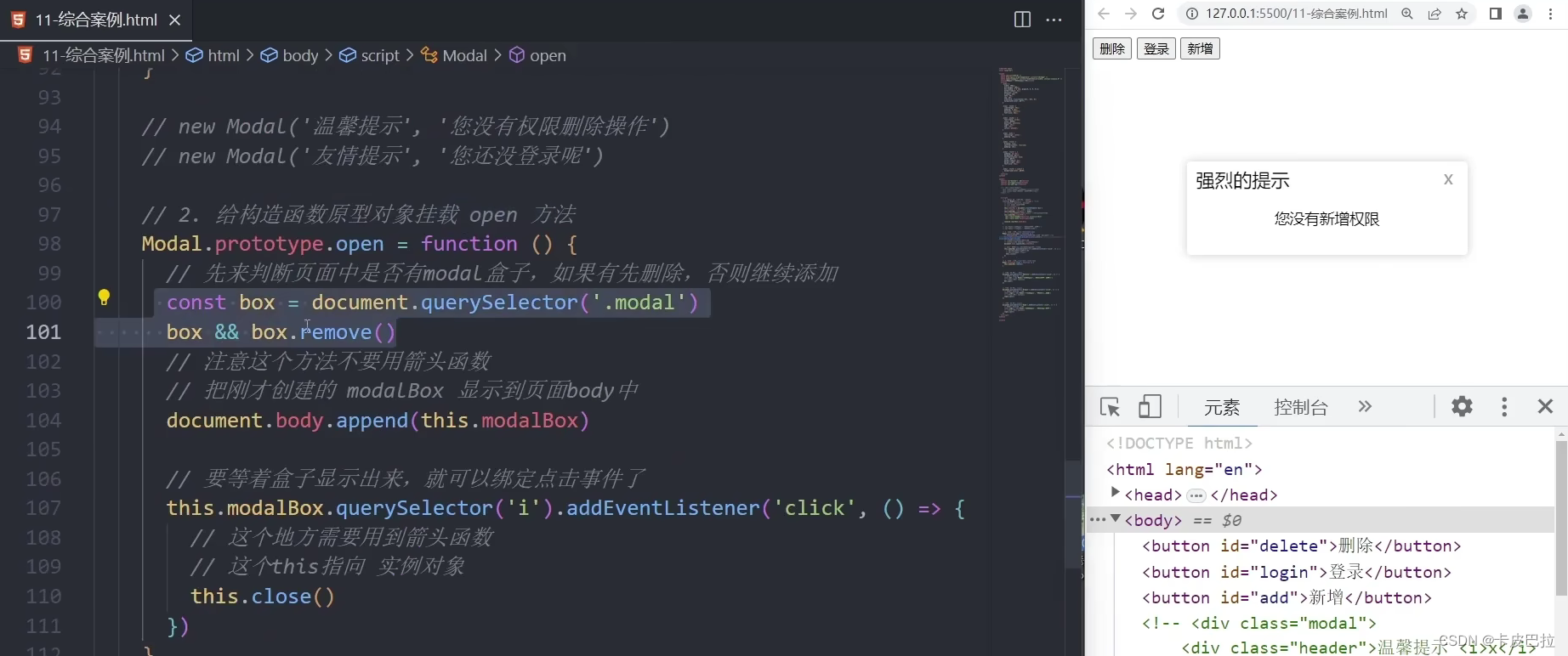
前端JavaScript入门到精通,javascript核心进阶ES6语法、API、js高级等基础知识和实战 —— JS进阶(三)
思维导图 1.编程思想 1.1 面向过程编程 1.2 面向对象编程 (oop) 2. 构造函数 3. 原型 3.1 原型 <!DOCTYPE html> <html lang"en"><head><meta charset"UTF-8"><meta http-equiv"X-UA-Compatible" content"IE…...
`tail` 显示文本文件的末尾部分)
Linux 指令心法(十一)`tail` 显示文本文件的末尾部分
文章目录 命令的概述和用途命令的用法命令行选项和参数的详细说明命令的示例命令的注意事项或提示 命令的概述和用途 tail 是一个用于显示文本文件的末尾部分的命令。它在 Linux 和 Unix 系统中非常有用,因为它允许用户查看文件的最后几行,以便实时监视…...
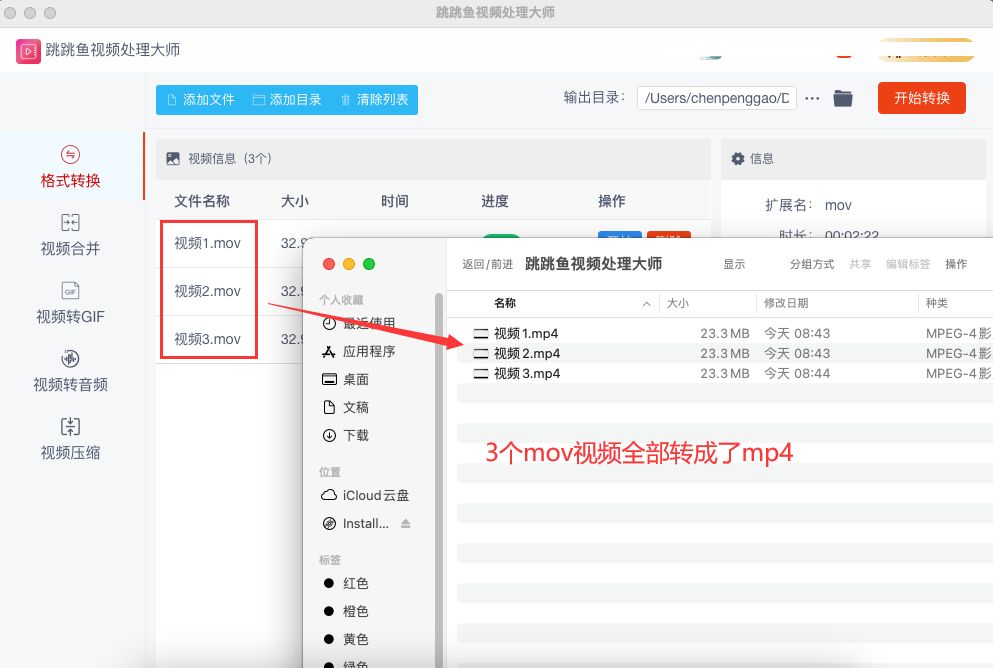
Mac mov转mp4,详细转换步骤
Mac mov转mp4怎么转?视频文件格式为.mov是由Apple公司所开发的特殊格式。因其只能在苹果设备上播放,与他人分享时就会变得困难。为此,我们通常会选择使用MP4这种最受欢迎的视频格式。在日常使用中,MP4成为了大家首选的视频格式。而…...

高级深入--day31
Item Pipeline 当Item在Spider中被收集之后,它将会被传递到Item Pipeline,这些Item Pipeline组件按定义的顺序处理Item。 每个Item Pipeline都是实现了简单方法的Python类,比如决定此Item是丢弃而存储。以下是item pipeline的一些典型应用&…...

一文讲解图像梯度
简介: 图像梯度计算的是图像变化的幅度。对于图像的边缘部分,其灰度值变化较大,梯度值变化也较大;相反,对于图像中比较平滑的部分,其灰度值变化较小,相应的梯度值变化也较小。一般情…...

湖州OLED透明拼接屏技术应用引领现代化旅游观光方式
湖州市位于中国浙江省北部,拥有悠久的历史和丰富的文化遗产。湖州市以其美丽的湖泊和秀丽的自然风光而闻名。 作为中国重要的历史文化名城之一,湖州市有着丰富的文化遗产和历史资源,如古城墙、古建筑和古镇等。 这为OLED透明拼接屏技术的应用…...
)
点云从入门到精通技术详解100篇-点云特征学习模型及其在配准中的应用(续)
目录 基于局部邻域的点云特征学习模型 3.1引言 3.2自适应邻域选择算法...

铁道交通运输运营3D模拟仿真实操提供一个沉浸、高效且环保的情境
VR模拟果蔬运输应急处理场景在农产品物流行业中具有重要的意义。这种模拟技术为农产品运输提供了全新的、更高效和更安全的方式来模拟真实世界的应急情况,帮助操作人员、研究者和管理者更好地理解和应对可能的运输风险措施。 VR模拟果蔬运输应急处理场景可以模拟出各…...

yum apt pip 阿里云源
centos yum 阿里云源 # 备份 mv /etc/yum.repos.d/CentOS-Base.repo /etc/yum.repos.d/CentOS-Base.repo.backup# centos 6 wget -O /etc/yum.repos.d/CentOS-Base.repo https://mirrors.aliyun.com/repo/Centos-vault-6.10.repo curl -o /etc/yum.repos.d/CentOS-Base.repo h…...
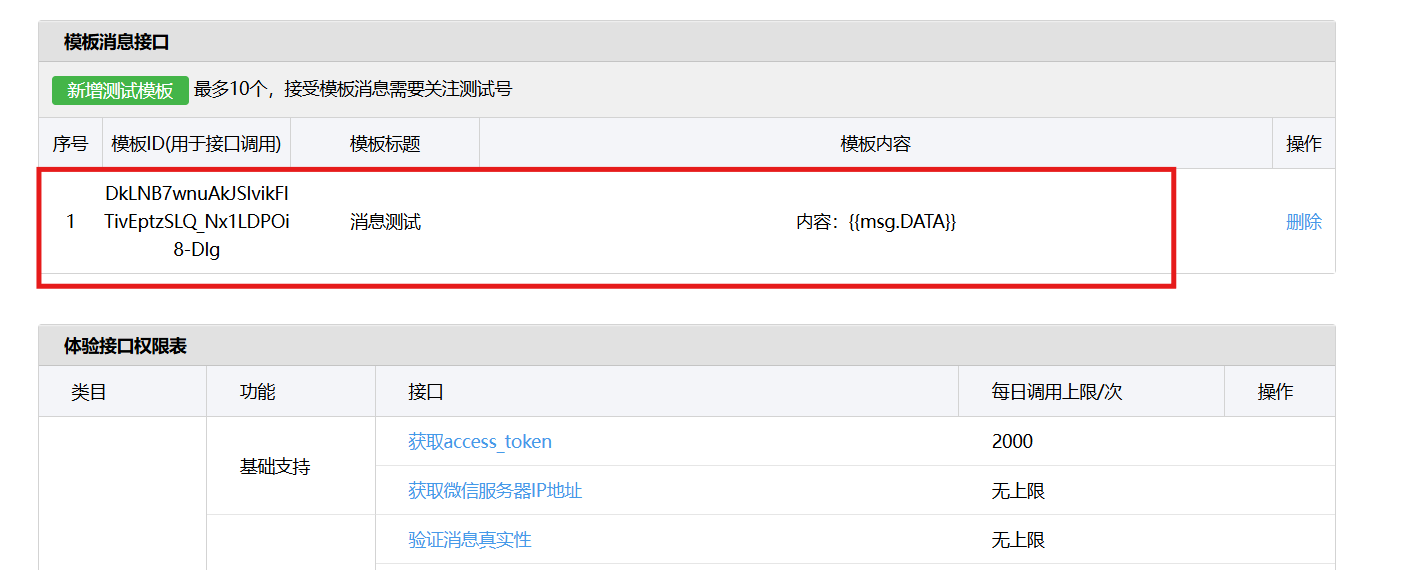
测试微信模版消息推送
进入“开发接口管理”--“公众平台测试账号”,无需申请公众账号、可在测试账号中体验并测试微信公众平台所有高级接口。 获取access_token: 自定义模版消息: 关注测试号:扫二维码关注测试号。 发送模版消息: import requests da…...
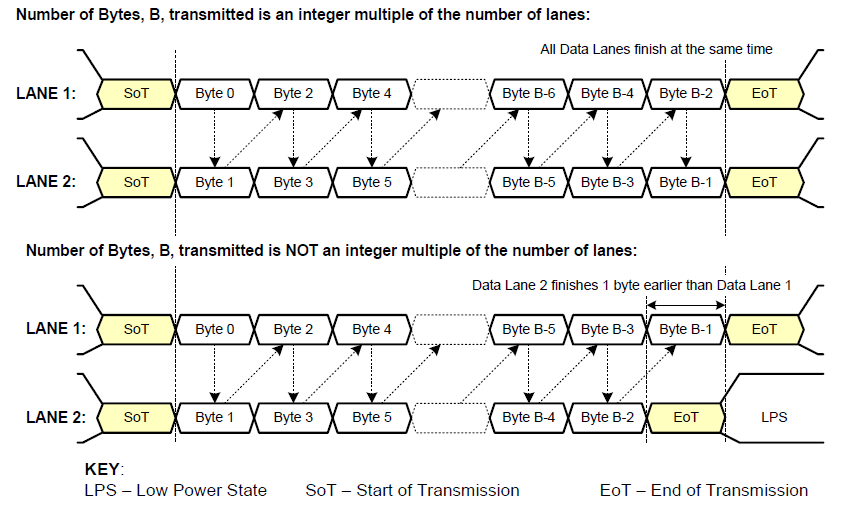
《从零掌握MIPI CSI-2: 协议精解与FPGA摄像头开发实战》-- CSI-2 协议详细解析 (一)
CSI-2 协议详细解析 (一) 1. CSI-2层定义(CSI-2 Layer Definitions) 分层结构 :CSI-2协议分为6层: 物理层(PHY Layer) : 定义电气特性、时钟机制和传输介质(导线&#…...

Opencv中的addweighted函数
一.addweighted函数作用 addweighted()是OpenCV库中用于图像处理的函数,主要功能是将两个输入图像(尺寸和类型相同)按照指定的权重进行加权叠加(图像融合),并添加一个标量值&#x…...

高等数学(下)题型笔记(八)空间解析几何与向量代数
目录 0 前言 1 向量的点乘 1.1 基本公式 1.2 例题 2 向量的叉乘 2.1 基础知识 2.2 例题 3 空间平面方程 3.1 基础知识 3.2 例题 4 空间直线方程 4.1 基础知识 4.2 例题 5 旋转曲面及其方程 5.1 基础知识 5.2 例题 6 空间曲面的法线与切平面 6.1 基础知识 6.2…...

IoT/HCIP实验-3/LiteOS操作系统内核实验(任务、内存、信号量、CMSIS..)
文章目录 概述HelloWorld 工程C/C配置编译器主配置Makefile脚本烧录器主配置运行结果程序调用栈 任务管理实验实验结果osal 系统适配层osal_task_create 其他实验实验源码内存管理实验互斥锁实验信号量实验 CMISIS接口实验还是得JlINKCMSIS 简介LiteOS->CMSIS任务间消息交互…...

AspectJ 在 Android 中的完整使用指南
一、环境配置(Gradle 7.0 适配) 1. 项目级 build.gradle // 注意:沪江插件已停更,推荐官方兼容方案 buildscript {dependencies {classpath org.aspectj:aspectjtools:1.9.9.1 // AspectJ 工具} } 2. 模块级 build.gradle plu…...

重启Eureka集群中的节点,对已经注册的服务有什么影响
先看答案,如果正确地操作,重启Eureka集群中的节点,对已经注册的服务影响非常小,甚至可以做到无感知。 但如果操作不当,可能会引发短暂的服务发现问题。 下面我们从Eureka的核心工作原理来详细分析这个问题。 Eureka的…...

Linux C语言网络编程详细入门教程:如何一步步实现TCP服务端与客户端通信
文章目录 Linux C语言网络编程详细入门教程:如何一步步实现TCP服务端与客户端通信前言一、网络通信基础概念二、服务端与客户端的完整流程图解三、每一步的详细讲解和代码示例1. 创建Socket(服务端和客户端都要)2. 绑定本地地址和端口&#x…...

【Android】Android 开发 ADB 常用指令
查看当前连接的设备 adb devices 连接设备 adb connect 设备IP 断开已连接的设备 adb disconnect 设备IP 安装应用 adb install 安装包的路径 卸载应用 adb uninstall 应用包名 查看已安装的应用包名 adb shell pm list packages 查看已安装的第三方应用包名 adb shell pm list…...

pycharm 设置环境出错
pycharm 设置环境出错 pycharm 新建项目,设置虚拟环境,出错 pycharm 出错 Cannot open Local Failed to start [powershell.exe, -NoExit, -ExecutionPolicy, Bypass, -File, C:\Program Files\JetBrains\PyCharm 2024.1.3\plugins\terminal\shell-int…...
